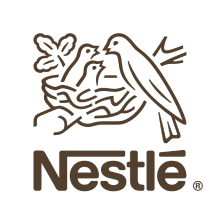
Effective Résumé Writing
How to Draft a More Effective Résumé
A résumé is a lot of things: a virtual first impression, a selling tool, a proper introduction. While it could be your ticket to career bliss, there is no one-size-fits-all. A résumé for an Art Director position at a creative agency will widely vary from that of an accountant or civil engineer. Regardless of whether you are seeking to join the financial world, arts and entertainment, or the manufacturing industry, one thing rings true: write to capture interest.
So, what's interesting? Stories are. A résumé should tell a compelling story about a candidate in a way that doesn't require the reader to have to read too deep in-between the lines. The language in which your résumé is crafted should speak volumes to your intelligence, academic, and professional experience. Are you results-oriented, process-oriented, or both? Are you more comfortable with handling numbers or abstract ideas? Are you a better leader or follower? Or are you just a jack of all trades? The verbiage in your résumé should allude to these types of professional qualities.
Aside from meeting the underlying qualifications of educational background and number of years of experience, what is it that brings home that unforgettable first impression just from a piece of paper? What makes the reader or employer feel that you are the one who can get the job done? A résumé that concisely explains three things: (1) what did you do? (2) Why did you do it? (3) What was the result? And when you receive a phone call to come in for a face-to-face interview, this becomes your opportunity to fill in all the details.
Use the below tips to audit your own résumé and make changes to put your best foot forward in your job search:
- Consider developing an objective statement if you are at the entry level or if you’re changing your career. This should be a short, targeted statement clearly outlining your career aspirations, as well as positioning you as a strong fit for the employer.
- Get back to basics. Ensure that your résumé includes these critical areas:
- EDUCATION: This section should include your school(s), program(s), graduation date(s) and any relevant coursework if applicable.
- EXPERIENCE: This is the “meat” of your résumé detailing previous educational and professional experience, as well as leadership roles.
- SKILLS / EXTRAS: Use this area to share any professional affiliations relevant extracurriculars, volunteer work or special skills.
- Make sure you tie your skills and experiences to what’s listed in the job description. It is considered good practice to have different versions of your résumé, in which each one is tailored to the specific position you apply to.
- Use metrics/data where you can show the value you added to a specific project or organization.
- Be specific, not generic. Show that you know who you are and that you’ve done your research on the employer.
Can you picture yourself at Nestlé Purina? Send us your résumé online by visiting the Search Jobs section of our website and apply for a position that best fits your area of interest and experience.




